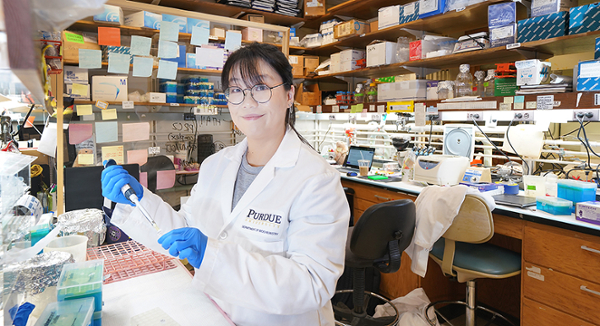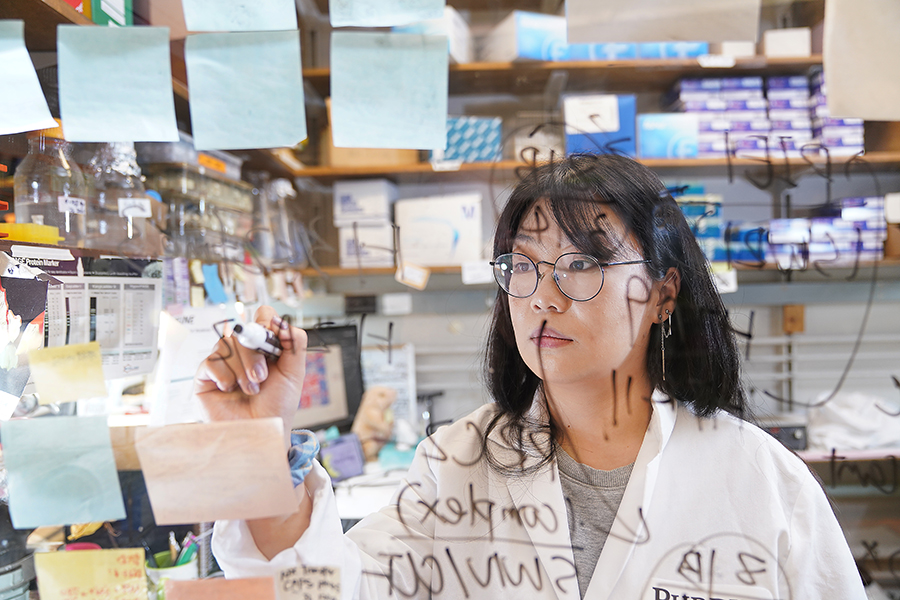I want to know what is happening — I’m interested in how different epigenetic marks contribute to gene expression and corresponding phenotypes.
- Jiaxin Long, PhD student, Department of Biochemistry
THE STUDENT
Jiaxin Long says that while her intent to study science never changed, her specific interests did. The native of Taiyuan, China, completed one year of study in materials science at Donghua University in Shanghai, working with a group focused on heart research. However, Long was more interested in fundamental lab research. Her father encouraged her to “see the bigger world,” so she transferred to the University at Buffalo and majored in biomedical sciences. “I like to investigate the basic mechanism of what’s happening in the cell,” she explains. Genetics in particular sparked her interest. After working in a lab her senior year, Long decided to pursue further study “to see how I would work more independently as a graduate student. I saw that the Purdue program had a very strong group of faculty working on genetics and chromatin. The diversity within this group of faculty — their different perspectives on the chromatin pathways — gave me a chance to try different flavors of the things I like.” She arrived at Purdue in 2017 to work with Joe Ogas, professor of biochemistry.
THE RESEARCH
Long’s research focuses on the repressive epigenetic mark H3K27me3, which she characterizes as “lock” that causes other machinery to stop, silencing gene expression. Using the plant model Arabidopsis thaliana, Long’s genetic and bioinformatic analysis contributes to understanding the mark’s role in silencing gene expression. Adding her data to that in previously published papers will enable researchers to better determine what patterns to study — “trying to make it all make sense,” she says. “Another thing we’re trying to figure out is how proteins have certain specialized functions. Those are exciting research topics.”
OPPORTUNITIES
Her advisor, Long says, “gives us a lot of flexibility to explore the things we enjoy but also gives us focus and pays attention to the details. He cares about how we can become independent researchers in the future.” Collaboration and cooperation across distinct biochemistry labs have been key in strengthening her skills in bioinformatic analysis, she adds. The latter led her to work on a comparative oncology project during a two-year assistantship at Purdue’s Center for Cancer Research. “It turned out I could use my skills applied to totally different topics, and I learned other techniques in this process as well,” she says. Long also has gained experience supervising undergraduates in the Ogas lab.
FUTURE PLANS
Long is in the final year of her program and plans to search for a postdoctoral position. “I worked with plants for six years but would like to apply my special skills to other fields and expand my knowledge and skill set,” she says. “I still have my mentors, but I really want to see if I can be an independent researcher as a postdoc, generating new ideas.” She is unsure if her next step might be academia or industry: “I can see the pros and cons of both,” she says. “I’m open to all opportunities.” Outside of the lab, Long enjoys hiking, swimming and playing badminton with friends.





